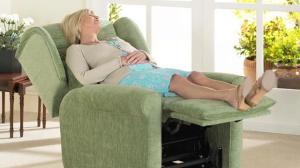 I know, it is an interesting title, but please continue reading.
I know, it is an interesting title, but please continue reading.
As people age and require geriatrics care, quality sleep can be harder and harder to come by each night. In addition, home health care, house calls and therapy can be extremely tiring, which weighs on a persons physical, mental and emotional health over time. The combination of these factors points to one thing – geriatrics care patients need to be intentional about their rest.
According to a quote from Bradley Edwards, PhD, on Madeline Vann’s Everyday Health article, The Seniors’ Guide to Sleeping Well, “A meta-analysis demonstrated that the amount of sleep we have decreases by approximately 10 minutes per decade up to the age of 60. 1” In addition, “But one of the most inconvenient sleep changes, explained Edwards, is that older adults have an advanced sleep phase. This is what causes you to want to go to bed early in the evening — as early as 7 p.m. — and get up early in the morning. 1”
So, one would naturally think that the answer would be more long afternoon naps for seniors in geriatrics care, right? Actually, not necessarily. According to the article, “not everyone should give in to a nap. 1”
“In general, people who want better sleep at night should avoid napping, regardless of age, and should focus on better sleep at night … However, for many older adults, especially those who just aren’t getting enough sleep at night, napping during the day is fine as long as the naps are relatively short — 30 minutes or so — and you take one early in the afternoon, closer to lunch than dinner. Otherwise, you can fall into a cycle of daytime napping and poor nighttime sleeping. 1”
The article also points out that “The problem for many older adults is that they don’t expect or accept these changes. 1” Therefore, planning ahead and being intentional about personal care and rest is important for geriatrics care patients. There are tactics such as being active during the day, consuming fewer stimulants late at night and keeping a consistent sleep schedule. For more information, contact your primary geriatrics care physician or home health nurse for practical tactics to care for your rest, and thus, your physical and mental health.
Vann, M., MPH (2014). The Seniors’ Guide to Sleeping Well. Everyday Health. Retrieved Oct. 28, 2014 from http://www.mayoclinic.org/healthy-living/adult-health/in-depth/napping/art-20048319


